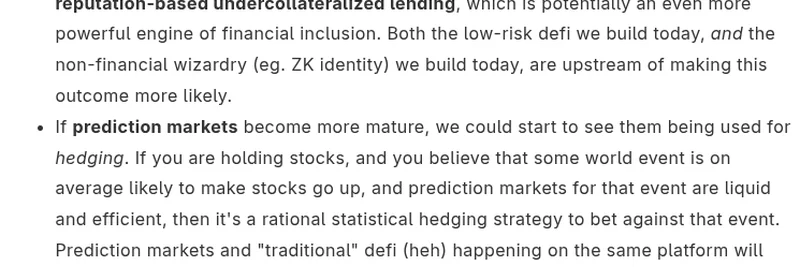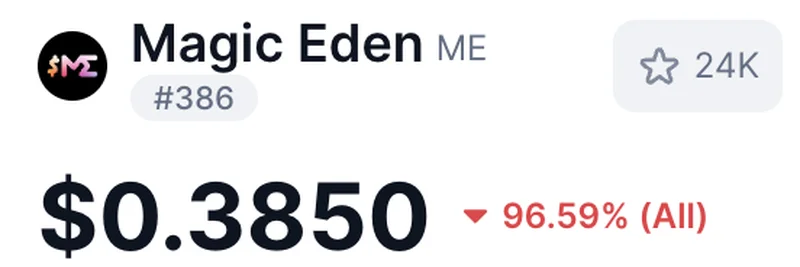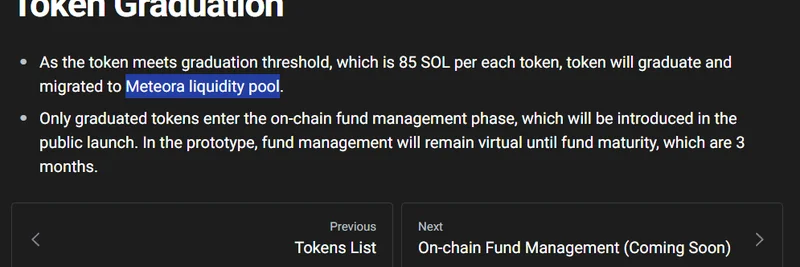If you've been following the blockchain space, especially the meme token craze, you might have caught wind of a thought-provoking thread from Ethereum co-founder Vitalik Buterin. Recently, the project 3Jane highlighted a key snippet from Vitalik's latest article, emphasizing how reputation-based undercollateralized lending could be the game-changer that propels DeFi—decentralized finance—to its next level of growth. For those new to the term, DeFi refers to financial services built on blockchain, allowing anyone to lend, borrow, or trade without traditional banks.
In his article titled "Low-risk defi can be for Ethereum what search was for Google," available here, Vitalik argues that low-risk DeFi is maturing into a stable foundation for Ethereum. This includes secure protocols for payments, savings, and collateralized lending that are now safer than some traditional finance options in certain regions. He points out that risks like protocol bugs and regulatory hurdles have significantly decreased over time, as shown in this chart from his post:
But what really caught the eye of 3Jane, a credit-based money market backed by Paradigm, is Vitalik's vision for the future. In a tweet quoting Vitalik, they spotlight this line: "It starts to make sense to explore reputation-based undercollateralized lending." 3Jane adds their take: "If executed correctly, unsecured credit will drive DeFi's next 10x." Unsecured credit, or undercollateralized lending, means borrowing without putting up full collateral—like how credit scores work in traditional banking, but powered by on-chain reputation.
Here's the excerpt Vitalik shared that dives deeper into this evolution:
Vitalik explains that once Ethereum has a solid ecosystem of financial and non-financial activities, tools like zero-knowledge (ZK) identity can enable this kind of lending. It's all about financial inclusion—helping more people access loans based on their proven track record rather than just assets they already own.
Now, how does this tie into meme tokens, the bread and butter of our community here at Meme Insider? Vitalik touches on experimental applications that synergize with low-risk DeFi, like prediction markets for hedging bets (think betting on real-world events to offset risks in your portfolio) and new stable value forms. He mentions "basket currencies," "flatcoins" (stablecoins adjusted for inflation based on consumer prices), and "personal tokens." Personal tokens sound a lot like creator coins or individualized meme tokens, where your reputation in the community could back their value.
While Vitalik critiques the dominance of speculative memecoins—calling out political memecoins as not truly world-changing—this opens doors for meme tokens to evolve beyond pure hype. Imagine borrowing against your meme token holdings using your on-chain reputation from community engagement, or personal tokens that blend meme culture with real utility. In the replies to Vitalik's thread, meme projects like $SPURDO, #moodeng, and $Cocoro are already chiming in, promoting charity efforts and community building on Ethereum. This shows how meme communities are eager to align with broader blockchain goals.
If unsecured credit takes off, it could inject serious liquidity into the meme token space. Meme creators and holders might access loans to fund projects or scale communities, turning fun tokens into tools for real economic activity. Of course, execution is key—building trustworthy reputation systems without centralization risks will be crucial.
Overall, Vitalik's piece is a call to action for Ethereum to focus on honorable, impactful applications. For meme token enthusiasts, it's an opportunity to think bigger: how can we leverage these DeFi advancements to make our favorite tokens more sustainable and inclusive? Keep an eye on projects like 3Jane, which are already pushing the boundaries of credit in DeFi. What are your thoughts—could this be the bridge between memes and mainstream blockchain utility?




